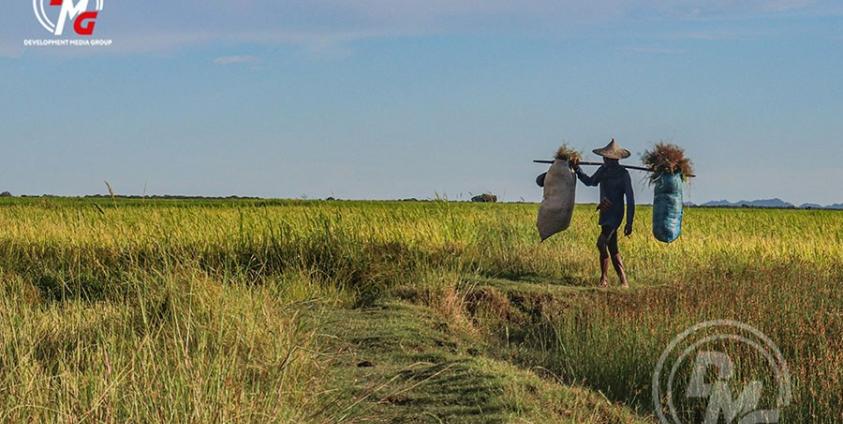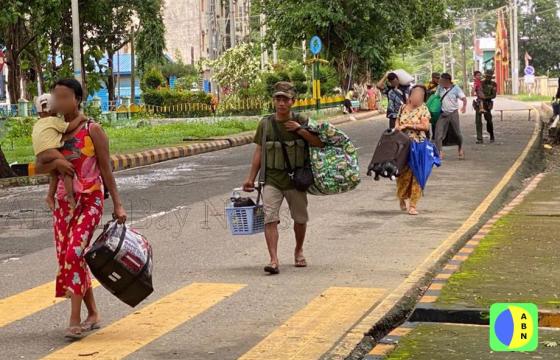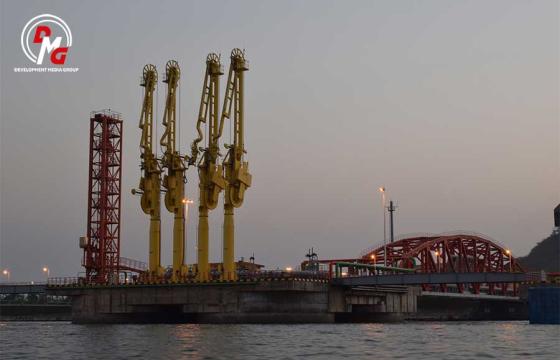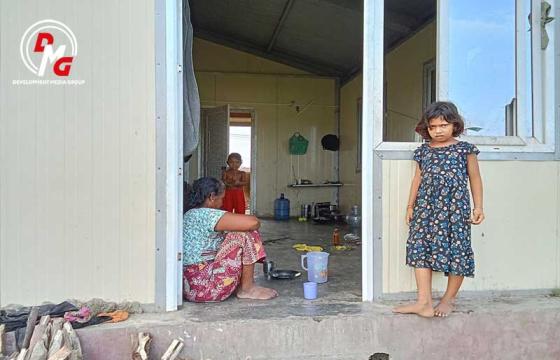Following the renewed conflict in Rakhine State in November, nearly all sectors, including agriculture, livestock, fisheries, garment production, small- and medium-sized factories, and private enterprises, have experienced a halt in operations.
Local businessmen have reported that the Military Council's blockade of land routes and waterways linking Rakhine State to mainland regions, along with the disruption of routes connecting townships within the region, has led to a cessation of local business activities, increasing fear of vastly increasing pain and hardship.
A Sittwe-based businessman told DMG “Most business and companies both retail and wholesale, have suspended operations. Currently only a handful of crops and some kitchenware manufacturing business can continue operations in Rakhine State. To put it simply, only 10 percent of all businesses in Rakhine State are still active”, a Sittwe-based businessman told DMG.
The primary economic activity in Rakhine State, the agriculture sector, is facing significant hardship, particularly in conflict-ridden areas where agricultural land remains unharvested.
Fisheries and livestock businesses have also been suspended, due to the current strict traffic restrictions.
"Poultry farms and livestock businesses, which get most of their animal feed from the mainland, are having trouble getting enough feed. Fish and shrimp farmers can't send their products to wholesalers anymore. And farmers can't buy fertilizer for their winter crops”, a Kyaukphyu local said.
In Rakhine State, there are over 84000 acres dedicated to aquaculture, including fish and shrimp, along with more than 1.2 million acres cultivated for crops like rice and beans. Additionally, there are individuals engaged in commercial poultry and livestock operations, as well as offshore fishing.
Seafood such as fish, shrimp, and crab, produced in Rakhine State is exported to various Asian countries, while crops like rice and beans are primarily shipped across the border to Bangladesh.
A businessperson from Mrauk-U emphasized,” "It looks like certain armed organizations won't back down until they achieve their political goals. On the other hand, the Military Council is desperately struggling, not sparing anything for its own survival. In this tough situation, businessmen are stuck and facing significant problems”.
The Department of Investment and Companies reports that 28 foreign investment companies have been granted permission to invest USD 9,278.88 million, while 31 national investment companies have been allowed to invest MMK 257,609.502 million in Rakhine State.
The oil and natural gas sector attracted the highest foreign investments, while local investors predominantly invest in hotels and tourism, transportation, and industrial manufacturing. Presently, most businesses owned by Myanmar citizens are suspended, and some foreign-owned businesses can only operate at half capacity.
Economists have emphasized that the Military Council's coup and the subsequent international sanctions, have also caused Myanmar's economic sector to plunge in the direction of a downward spiral.








